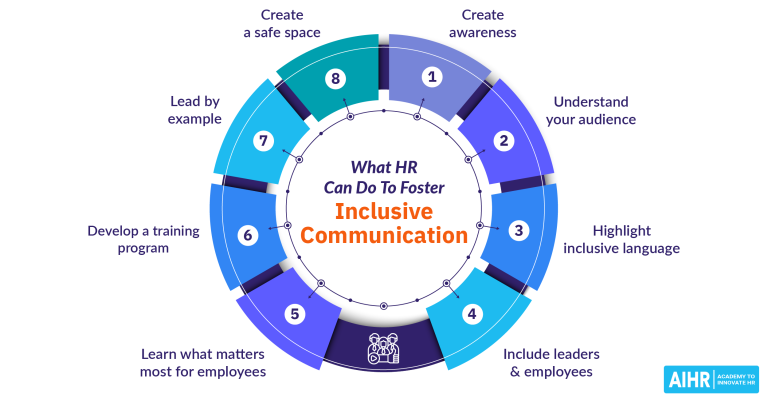Touching Stomach Body Language You Need to Know
Welcome, curious minds, to the fascinating world of body language! Today, we’re zooming in on a specific gesture: touching the stomach. Have you ever wondered what it means when someone touches their stomach? Well, you’re in luck! In this article, we’ll dive into the mysterious realm of touching stomach body language and uncover the hidden messages behind this intriguing gesture.
Before we uncover the secrets behind touching the stomach, let’s take a moment to understand the power of nonverbal communication. Did you know that only a small percentage of communication is actually conveyed through spoken words? That’s right! Our body language, including gestures and facial expressions, plays a significant role in how we express ourselves and understand others.

Exploring the Language of Touch: Understanding the Meaning of Touching Stomach
In our daily interactions, body language plays a crucial role in communication, often conveying messages and emotions that words alone cannot express. One specific gesture that has piqued curiosity is touching the stomach. Whether it’s done unconsciously or intentionally, this gesture holds various meanings depending on the context and individual. In this article, we delve into the intricacies of touching stomach body language, exploring its possible interpretations and shedding light on its significance.
The Comforting Gesture: Assurance and Reassurance
When someone touches their stomach, it can often be a subconscious way of seeking comfort and reassurance. This gesture indicates a deep need for security and emotional support. In such instances, the person touching their stomach may be looking for a way to calm themselves down or find solace in a challenging or stressful situation. More often than not, this gesture manifests as a gentle rubbing or patting motion, providing a sense of warmth and soothing energy.
In relationships, touching the stomach can also signify a desire to provide comfort to a partner. It can be an intimate gesture, communicating a willingness to be there for them, and offering emotional support during difficult times. When someone you care about touches their stomach in your presence, it is a clear indication that they trust you and feel safe expressing vulnerability in your company.
The Tummy Tells: Nervousness and Anxiety
Contrary to the comforting gesture, touching the stomach can also signal nervousness and anxiety. When people feel stressed or anxious, they might subconsciously resort to self-soothing techniques, such as touching their stomach. It’s their body’s way of seeking physical reassurance and trying to alleviate tension.
This gesture can be seen in various scenarios—prior to public speaking engagements, job interviews, or important meetings. For some individuals, the stomach may express vulnerability and serve as a physical outlet for inner discomfort. It’s important to approach such situations with empathy and understanding, offering support and encouragement to help alleviate their anxiety.
The Confidence Booster: Self-Assuredness and Seduction
Surprisingly, touching the stomach can also be associated with confidence and sensuality. In certain situations, it becomes a deliberate and purposeful action, sending a clear message of self-assuredness and seduction. This gesture is often seen in confident individuals who are comfortable in their own skin and aware of their attractiveness.
When used in a flirtatious context, touching the stomach can be a subtle way of drawing attention to one’s physical appearance and inviting interest. It can be seen as a form of self-expression and a way to non-verbally communicate one’s appeal. However, it’s important to remember that interpretations of body language can vary, and consent and personal boundaries must always be respected.
The Cultural Context: Varying Interpretations of Body Language
Understanding body language, including the meaning of touching the stomach, requires cultural sensitivity and context. Gestures can vary significantly across different cultures, as their interpretation is shaped by a society’s customs, beliefs, and traditions.
For instance, in some cultures, touching the stomach may symbolize good fortune or prosperity, while in others, it may carry religious connotations. It’s essential to approach the study of body language with an open mind, acknowledging and respecting the cultural nuances that influence its interpretation.
Tips for Interpreting Body Language
1. Observe Body Language as a Whole: Pay attention to the entire range of someone’s non-verbal cues, taking into account their facial expressions, gestures, and posture. This will provide a more comprehensive understanding of their intentions and emotions.
2. Consider the Context: The meaning of a gesture can differ depending on the situation and the relationship between the individuals involved. Consider the context before drawing any conclusions.
3. Be Mindful of Cultural Differences: Understand that body language interpretation can vary across cultures. What may be considered acceptable in one culture could be seen as offensive or inappropriate in another. Educate yourself about cultural norms when dealing with individuals from different backgrounds.
4. Look for Consistency: Analyze the consistency of the individual’s body language over time. Inconsistent gestures may indicate mixed emotions or a lack of authenticity.
5. Trust Your Instincts: While it’s essential to be mindful of various interpretations, trust your instincts and intuition when deciphering body language. Your own perception and understanding can be valuable in interpreting non-verbal cues.
Key Takeaways: Touching Stomach Body Language
- Your stomach is a sensitive area, and touching it can indicate discomfort or anxiety.
- Touching your stomach can also be a sign of submissiveness or vulnerability.
- When someone touches their stomach while speaking to you, it may mean they are feeling nervous or insecure.
- Be aware of cultural differences, as the meaning of touching the stomach can vary.
- Pay attention to other body language cues to get a complete understanding of the person’s emotions.
Frequently Asked Questions
In this section, we will explore questions related to body language cues involving touching the stomach.
1. Why do people touch their stomach in body language?
Touching the stomach in body language can be a way for people to display vulnerability or protectiveness. When someone touches their stomach, it can indicate that they are feeling anxious, nervous, or vulnerable. This gesture is an unconscious way for them to seek comfort or protection in a situation. It can also be a way to self-soothe, especially when feeling uncertain or stressed.
On the other hand, touching the stomach can also be a form of protection. It can serve as a way to guard oneself or create a protective barrier in front of the stomach, which is considered a vulnerable area. This gesture can be seen in situations where individuals are feeling defensive or trying to create a sense of security around themselves.
2. Are there cultural differences in the meaning of touching the stomach?
Yes, the meaning of touching the stomach in body language can vary across different cultures. In some cultures, touching the stomach may symbolize hunger, thirst, or a desire for food. It can be a way to communicate a basic need or signal that someone is ready to eat or drink.
In other cultures, touching the stomach may have different connotations. For example, in certain Asian cultures, touching the stomach can represent politeness or gratitude towards the host after eating a meal. It can be a way to show appreciation for the food that has been served. Therefore, it’s important to consider cultural differences and context when interpreting body language cues related to touching the stomach.
3. Can touching the stomach be a sign of discomfort or anxiety?
Yes, touching the stomach can be a sign of discomfort or anxiety in body language. When individuals are feeling stressed, anxious, or uneasy, they may unconsciously touch or rub their stomach as a way to comfort themselves. This gesture can be similar to how we instinctively hold or touch a part of our body that feels painful or uncomfortable.
It’s important to consider other body language cues and the overall context when interpreting the meaning behind someone touching their stomach. If they are displaying other signs of anxiety, such as fidgeting, avoiding eye contact, or shallow breathing, then touching the stomach can further indicate their inner discomfort.
4. Can touching the stomach indicate a lack of confidence?
Touching the stomach in body language can sometimes indicate a lack of confidence. When people feel nervous or unsure of themselves, they may unconsciously use self-soothing gestures like touching the stomach as a way to calm their nerves. It can be a subconscious attempt to provide a sense of comfort or security in a potentially challenging or unfamiliar situation.
However, it’s essential to note that body language cues should not be interpreted in isolation. It’s crucial to consider the overall context, other gestures, and verbal communication when assessing someone’s confidence level. Different individuals may exhibit different body language cues, so it’s essential to observe multiple signals to gain a comprehensive understanding of the situation.
5. What are some other body language cues to look for in conjunction with touching the stomach?
When someone touches their stomach, it’s important to consider other body language cues that may accompany this gesture. For example, crossed arms, hunched posture, or a lack of eye contact can indicate defensiveness or discomfort. Additionally, if someone is touching their stomach while avoiding or turning their body away from others, it may suggest a desire to create distance or protect themselves.
Furthermore, observing facial expressions can provide valuable insights. If a person is touching their stomach while displaying signs of stress, such as a furrowed brow or tense jaw, it can amplify the message of anxiety or discomfort. Paying attention to these additional cues can help to paint a clearer picture of someone’s feelings and intentions.

The Ultimate Body Language Guide – 29 Movements (Chest, Torso, Belly, Hips)
Summary
When someone touches their stomach, it can reveal a lot about how they are feeling. It may indicate that they are nervous, anxious, or trying to soothe themselves. On the other hand, it could also suggest that they are feeling satisfied or comfortable. It’s important to consider the context and other body language cues to fully understand the meaning behind this gesture. Additionally, when someone touches their stomach while they are talking to you, it may be a sign that they are being dishonest or hiding something.
However, it’s essential to remember that body language is not always accurate and should be interpreted alongside other cues to get a complete understanding of a person’s feelings and intentions. So, next time you notice someone touching their stomach, pay attention to the situation and other non-verbal cues to decipher its true meaning.

